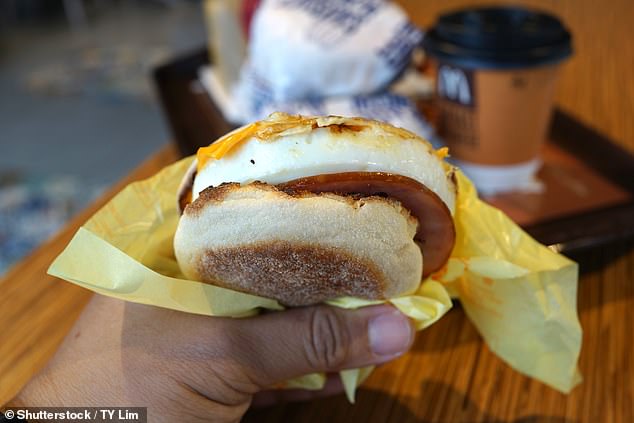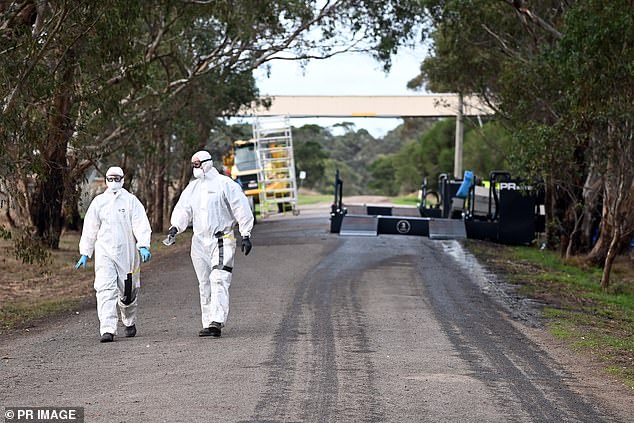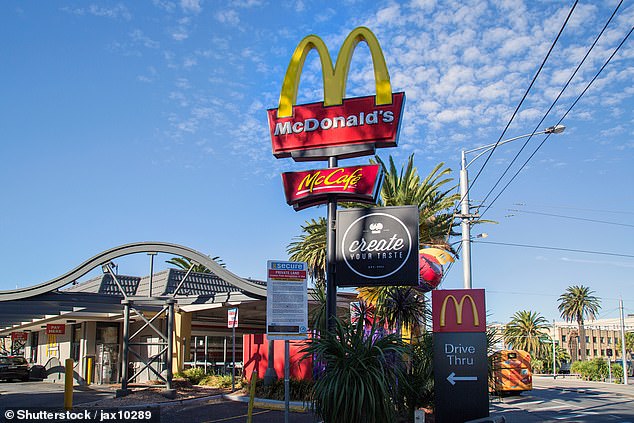Australians may soon find it harder to order fan-favourites from McDonald’s menus as the country’s supply of chicken eggs dwindles following outbreaks of bird flu.
A spokesperson for the fast food giant told Daily Mail Australia on Monday that its franchises will stop offering the breakfast menu from 10:30am instead of midday.
They said the decision was made as the hospitality industry and supermarkets struggle with an egg shortage due to bird flu.
Two farms in New South Wales and eight in Victoria have been forced to close or cull their livestock to try to stop the spread of the disease, leading to a shortage of eggs.
The morning menu offers a wide variety of McMuffins with fried eggs and the famous pancakes that have eggs in the batter. French fries will be available throughout the day.
“We know our customers love Macca’s breakfast, so to ensure we can continue to serve fresh Australian eggs on our menu, we will temporarily be offering breakfast until 10:30am across Australia,” the spokesperson said.
‘This means customers can still enjoy all their breakfast favourites, including the Bacon & Egg McMuffin, Sausage & Egg McMuffin and the Big Brekkie Burger – they’ll just need to arrive a little earlier than usual.
“We continue to work closely with our network of Australian farmers, producers and suppliers as the industry comes together to meet this challenge.”
McDonald’s Australia announced on Monday that it will stop offering its fan-favourite breakfast menu from 10:30am instead of midday due to a shortage of chicken eggs (file image)

The morning menu offers a wide variety of McMuffins with fried eggs and the famous pancakes in which the fast food chain uses eggs in the batter.
McDonald’s is just the latest to take action in response to the egg shortage after Woolworths announced a limit on the number of eggs customers can buy.
The supermarket giant has imposed a limit of two packs per person of the staple due to a “backlog” in stock.
The limits will apply to stores in New South Wales, the Australian Capital Territory and Victoria, while other states will not be affected.
“Along with other retailers, we expect a short-term delay in stock from one of our egg suppliers in New South Wales, ACT and Victoria, due to the temporary closure of one of their packing plants,” a Woolworths spokesperson said.
‘Its supply is expected to recover over the next week as operations at its other sites ramp up.’
Woolworths’ decision came after supermarket rival Coles earlier imposed its own two-carton limit.
Coles rationing applies across the country, with the exception of Western Australia.
Woolworths said its move was “precautionary” and said it would soon be lifted.
“At the moment, most customers only buy one carton of eggs at a time and there is no reason for that to change,” the spokesman said.
‘We encourage shoppers to be mindful of others and continue to purchase only what they would normally buy.’

Avian flu has been confirmed on two egg farms in New South Wales and eight in Victoria, prompting more than a million birds to be culled in an attempt to stem the outbreak (pictured: health officials on a farm in Victoria)
More than one million birds are estimated to be destroyed in Victoria due to the outbreak, with the death toll in New South Wales at more than 320,000.
The NSW Health website states: ‘Avian influenza (also known as bird flu) is caused by influenza A viruses, similar to the virus that causes seasonal flu in humans.’
‘It is spread mainly among wild waterfowl, but can occasionally be transmitted to humans, although this is rare.’
Avian influenza can cause mild to severe illness in birds and other animals.
Most bird flu infections in humans are mild and cause no symptoms.
When they occur, common symptoms may include fever, cough, tiredness, muscle aches and sore throat.


